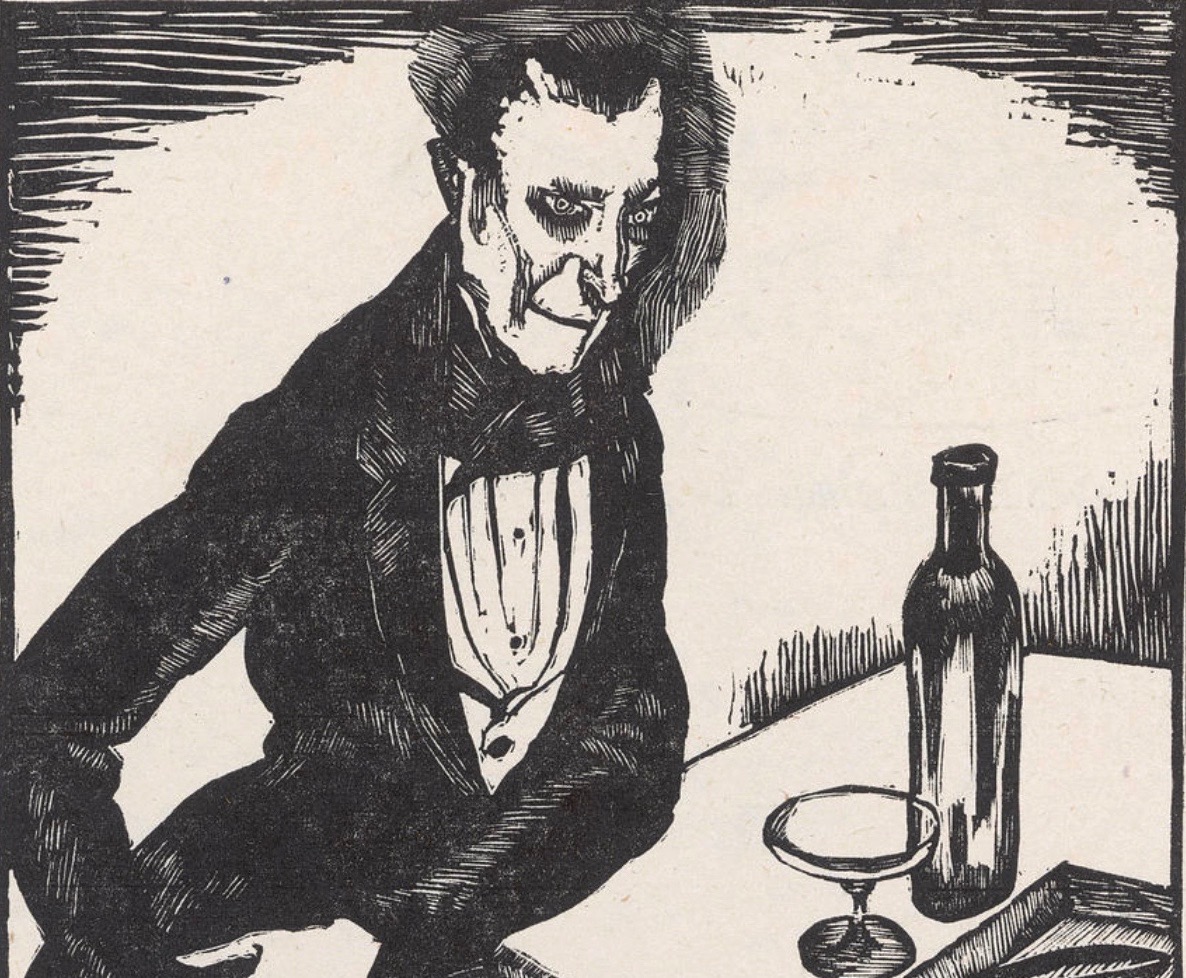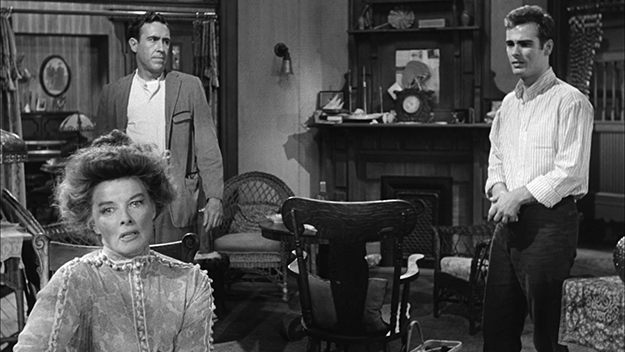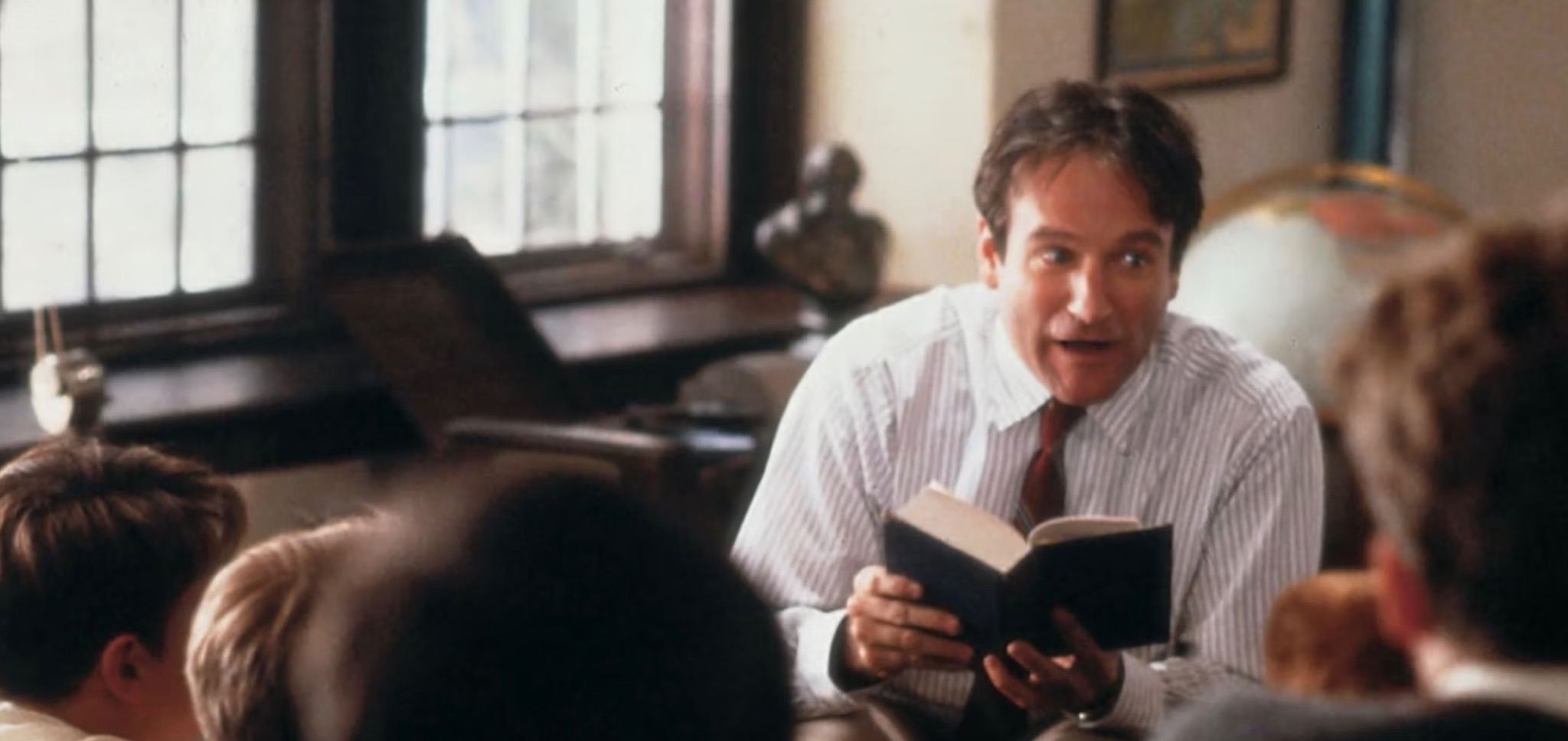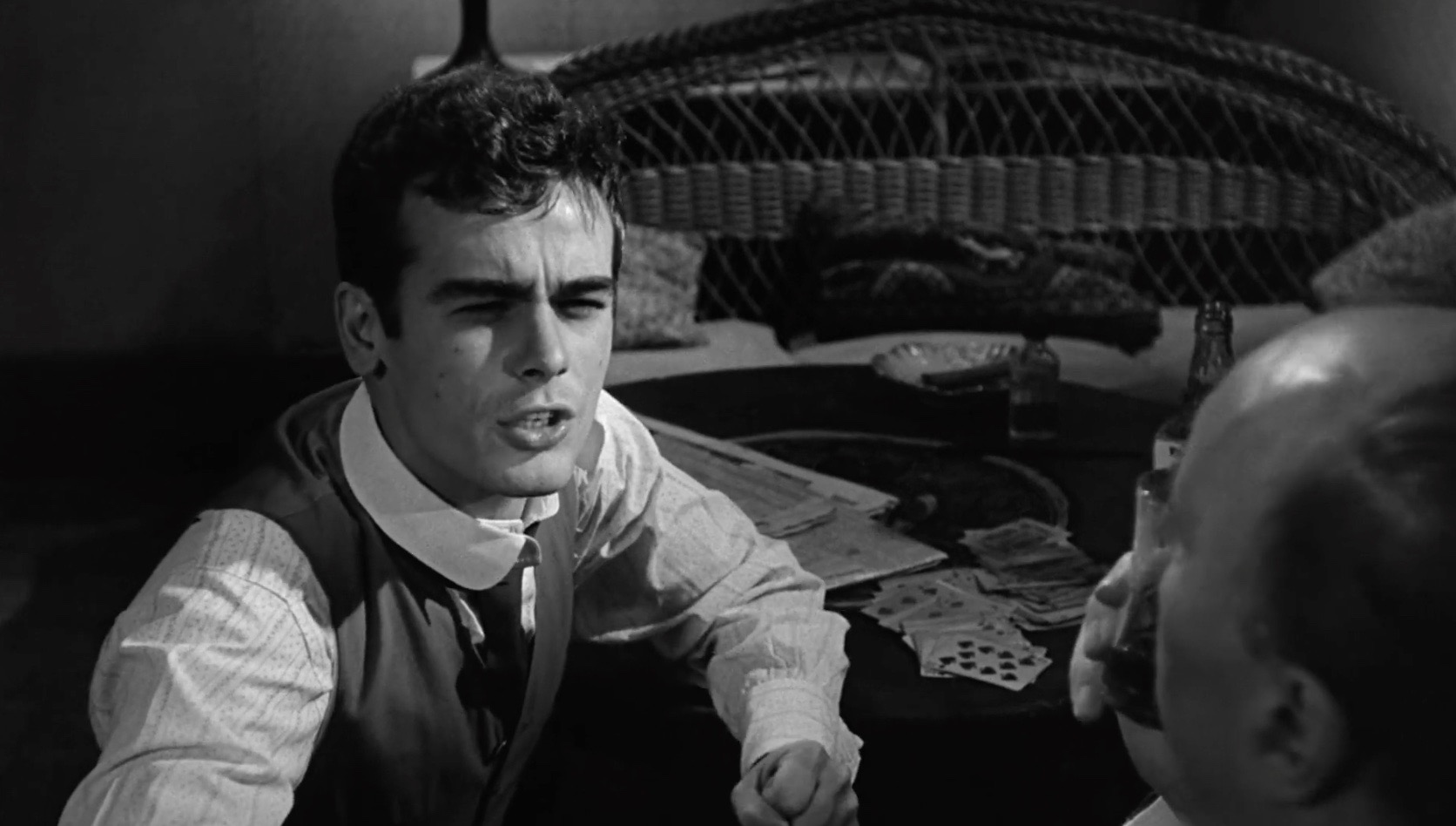
Revisiting One of My Favorite Poems
During the fall semester of my junior year at Rhodes College, I took a literature course whose syllabus included “Long Day’s Journey into Night,” the famed play by the esteemed American playwright Eugene O’Neill that was later adapted into a film starring Katharine Hepburn, Jason Robards and Dean Stockwell.
For anyone who read the play or watched the movie, you’re probably thinking, “Oh, crap, please don’t expound on that tedious mid-20th-century drama about depression, dysfunction and addiction.”

Don’t worry. This installment of “A Fan’s Notes” is not a tribute to the play or the film. And that’s not to throw shade on O’Neill, whose contributions to American Letters are legendary and whose ode to his beloved Dalmatian Blemie is one of the most moving pieces I’ve read about the death of a pet.
O’Neill is a master worth honoring, and “Long Day’s Journey into Night” is a masterpiece worth reading or watching; it earned him a posthumous Pulitzer Prize for Drama in 1957. But this post is about neither him nor his most famous work because they don’t meet my standards of something I am fanatic about, which is the purpose of this blog.
“Long Day’s Journey into Night” was merely something I had to read, watch, study and write about while earning my Bachelor of Arts. Now, it’s the vehicle for my latest homage to something I’ve been a fan of for many years.
‘Be always drunken’
Today, I celebrate a short work of literature that O’Neill inserted into his script—a poem titled “Be Always Drunken” by the French writer Charles Baudelaire. (The image in this blog’s header is a drawing of Baudelaire drinking in a café.)
Before unveiling the verse, here’s a quick recap to understand the poem’s role in the story.
“Long Day’s Journey into Night” takes place on a single day in August 1912 at the Connecticut home of the Tyrone family and centers on the five family members—James, his wife, Mary, and their three adult children, James Jr. (Jamie), Edmund, and Cathleen. Throughout the day, over four acts fraught with anguish and anger, the Tyrone family copes with everything from general malaise to full-on madness, from disappointment with each other to dissatisfaction with life, from devastating alcoholism to debilitating drug addiction.
And yes, it’s as depressing as it sounds.
In the film, Stockwell plays the troubled, alcoholic, sickly youngest son, Edmund. In one scene, during an exchange with his father about his desire to be a poet, Edmund defends his excessive drinking by dramatically reciting “Be Always Drunken” (click to watch the 60-second clip).
In the script notes, O’Neill describes Edmund as the “23-year-old son, expelled from college, voyaging, homeless. He recites, and recites well, with bitter, ironical passion, the Symons’ translation of Baudelaire’s prose poem.”
Here is the poem in full:
Be always drunken.
Nothing else matters:
that is the only question.
If you would not feel
the horrible burden of Time
weighing on your shoulders
and crushing you to the earth,
be drunken continually.
Drunken with what?
With wine, with poetry, or with virtue, as you will.
But be drunken.
And if sometimes,
on the stairs of a palace,
or on the green side of a ditch,
or in the dreary solitude of your own room,
you should awaken
and the drunkenness be half or wholly slipped away from you,
ask of the wind,
or of the wave,
or of the star,
or of the bird,
or of the clock,
of whatever flies,
or sighs,
or rocks,
or sings,
or speaks,
ask what hour it is;
and the wind,
wave,
star,
bird,
clock will answer you:
“It is the hour to be drunken!”
“Be drunken,
if you would not be martyred slaves of Time;
be drunken continually!
With wine,
with poetry,
or with virtue,
as you will.”
Prose-poem by Charles-Pierre Baudelaire (1821-1867).
Translated by Symons and quoted by Eugene O'Neill
(in Long Day's Journey into Night). Arranged by PJH
Everything about it—Baudelaire’s poetry, Stockwell’s delivery and even O’Neill’s stage notes about a “voyaging” young man reciting the poem with “bitter, ironical passion”—resonated with me as I sat in that Palmer Hall classroom on a late autumn afternoon, my eyes gazing out to the quad, my mind drifting to another place and time.
OK, I was likely thinking about the coming weekend and the heroic drinking that would ensue—this was college, after all—and smirking at a poem about being drunk. But I also wondered what the world might have in store for me when (if?) I graduated. I pondered what it meant to be drunk with poetry or virtue. And I questioned if I would, or even could, avoid becoming a martyred slave of Time.
All these decades later, as I revisit Baudelaire’s poem, the things that spoke to me then speak to me still. But today I view them in a new light, with a new appreciation and a new understanding of their deeper meaning.
‘Drunken with what?’
Because “Long Day’s Journey into Night” introduced me to “Be Always Drunken,” I’ve used the translation of Baudelaire’s poem that O’Neill selected for his script, that of British poet and critic Arthur Symons, but there are several versions with slightly different titles and text.
My good friend Andrew Shipman reminded me of this during a recent text exchange. Andrew is the ideal person to wax poetic about “Be Always Drunken” because years ago, he memorized it to recite at parties. His rendition was always a big hit, as one would expect amid intoxicated revelers, and I love that he learned it and shared it with others. He used a different variation—the title was “Be Drunk” rather than “Be Always Drunken,” for example—but the sentiment remained the same.
My take on the poem now versus when I was in my 20s is also different. In the scene where Edmund recites “Be Always Drunken,” he and his father are indeed drinking alcohol, so O’Neill certainly wanted readers to interpret the poem primarily for the literal definition of being drunk. That was probably my big takeaway back then.
But while it will always be fun to read or recite “Be Always Drunken” over a celebratory cocktail, the poem now means so much more, especially to someone who majored in poetry, chose a career in writing and recently started a blog.
Remember, Baudelaire says poetry and virtue are other ways to achieve a state of intoxication. But how, exactly, does one get drunk on such abstract concepts?
I think being drunk on virtue means the satisfaction derived from being a good, moral person living an authentic life. Consider those you know (perhaps yourself) who seem truly happy, especially when helping others and doing benevolent things. Many people derive great happiness from their good deeds, their virtuous lives.
And I think being drunk on poetry means getting lost in the beauty and power of the written word, whether yours or someone else’s. Language has the ability to elicit all manner of emotions.
The movie “Dead Poets Society” comes to mind for the way it portrays the study and practice of poetry. In one scene, the inspirational English teacher Mr. Keating, played masterfully by the one-and-only Robin Williams, tells his students why they should re-create Welton Academy’s dormant Dead Poets Society—the loosely organized gathering in the woods where reading, writing and living poetry is a celebration.

“We were romantics,” Keating says, describing how he and his classmates ran DPS back in the day. “We didn’t just read poetry; we let it drip from our tongues like honey. Spirits soared, women swooned and gods were created, gentlemen. Not a bad way to spend an evening, eh?”
Amen, Captain. That’s precisely what I think Baudelaire meant.
‘With wine, with poetry or with virtue as you will’
I believe poetry—art of any kind, really—can have an intoxicating effect. So can virtue. Wine, poetry and virtue each have a unique way of helping us find and experience joy, whether it’s the heady feeling after a drink, being moved by wondrous writing or simply living a good, honest life. Something else altogether might consume you, fulfill your purpose and bring immense satisfaction.
Obviously, being always drunken is an unrealistic expectation, a poetic exaggeration. No one can or should sustain continual drunkenness, whether it’s wine, poetry or virtue.
But Baudelaire’s message was clear: Embrace whatever “intoxicated” state appeals to you (and however you interpret that word) and try your damnedest to never let it go—or to recapture it should the feeling half or wholly slip away. Do whatever is necessary to postpone the “horrible burden of Time, weighing on your shoulders and crushing you to the earth.”
I’ll drink to that. And I’ll close this edition of “A Fan’s Notes” with a final toast to Baudelaire and his poem. I’m forever a fan of the simple yet powerful lesson that spoke to me decades ago and continues to guide my life: “Be drunken continually! With wine, with poetry or with virtue, as you will.”


0 Comments Add a Comment?